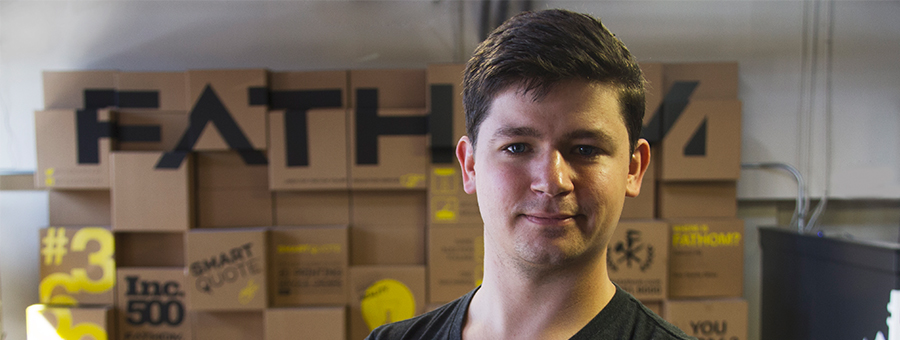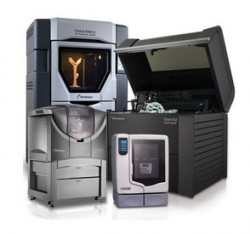Q&A Interview with Hendric Vogel
Fathom is more than a company driven by advanced technologies that enhance the product development process. As a collection of individuals with far-reaching interests and backgrounds, our team’s personal passions for technologies and arts closely related to additive manufacturing augment our ability to serve our customers and devise creative solutions to the most stubborn of problems. Hendric Vogel is no exception as his professional history in visual effects and 3D modeling have informed his role as a Customer Support Engineer at Fathom.
In this short Q&A, Hendric shares his work experience, his thoughts on professional additive manufacturing systems and what excites him most about working at Fathom.

Fathom is a company driven by advanced technologies with an expertise in 3D printing and additive manufacturing — tell us about your professional experience and why you decided to pursue a career in the 3D printing industry.
Vogel: After college, I started working in the visual effects and motion picture world, an industry filled with professionals and artists who create magic on the big screen. But all that work could be easily erased with a single keystroke.
I needed something tangible. I started working as a set-builder and miniature model-maker, eventually landing a job at a 3D printing service bureau in San Francisco. With my knowledge of newer software and film making techniques, I was able to jump in and bridge the gap between traditional fabrication and modern techniques. After mastering the engineering side of business and becoming more familiar with the 3D printing community, particularly in the San Francisco Bay Area, I set my sights on Fathom. I kept my eye on the 3D printing-focused production center for a long time and when this position opened up, I jumped on it.
Now the things I help create can be held in the palm of your hand.

The team has heard it all, from how 3D printing is just a gimmick to how 3D printers will replace all manufacturing processes — what is the biggest misconception of 3D printing?
Vogel: Usability, reliability and support: these are the areas in which professional 3D printing systems surpass hobbyist machines.
Personal 3D printers are great for hobbyists and hackers, but these machines require constant attention to produce parts that show a fraction of the quality that comes from professional printers. Personal printers also rely heavily on their users to figure out the bugs and glitches within the systems and many have only been on the market for a short time.
Fathom offers professional 3D printing systems by Stratasys, which come with experience and reliability above and beyond personal 3D printers. You know when a design goes to print on a Stratasys machine from Fathom, your parts will consistently be high-quality. If the need arises, an experienced professional will be there promptly to get your team back online!
Fathom’s machine owners and manufacturing service customers come from a wide range of industries with varying application specifications and challenges — what are the most interesting examples using 3D printing that you’ve seen? Many of our projects are under NDA but are there a few you can talk about?
Vogel: I still get excited about how companies utilize 3D printing for accelerated prototype fabrication. If I am creating a new device, I want the reliability and control that 3D printing brings to the design process. I want to know I can deliver design iterations on time and with dependable quality so I can focus my energy elsewhere. I also want speed and flexibility so last-minute changes and design epiphanies don’t slow the process of bringing my vision to reality.
Fathom’s professional-level 3D printers deliver all of this and make it possible to succeed at the breakneck pace of the modern world.

From installation to remote support to site visits, Customer Support Engineers at Fathom have the opportunity to interact with customers on several levels — what have you enjoyed most about this position so far?
Vogel: I love having the privilege of entering laboratories at the greatest companies on earth, where they design the innovations of tomorrow. I’m blown away by the fact that I am in the birth place of the technology that has changed the world so dramatically. I can’t talk about what I see, but I’m excited to know that Fathom is part of that process, realizing the future and helping companies make the unmakeable every day.







